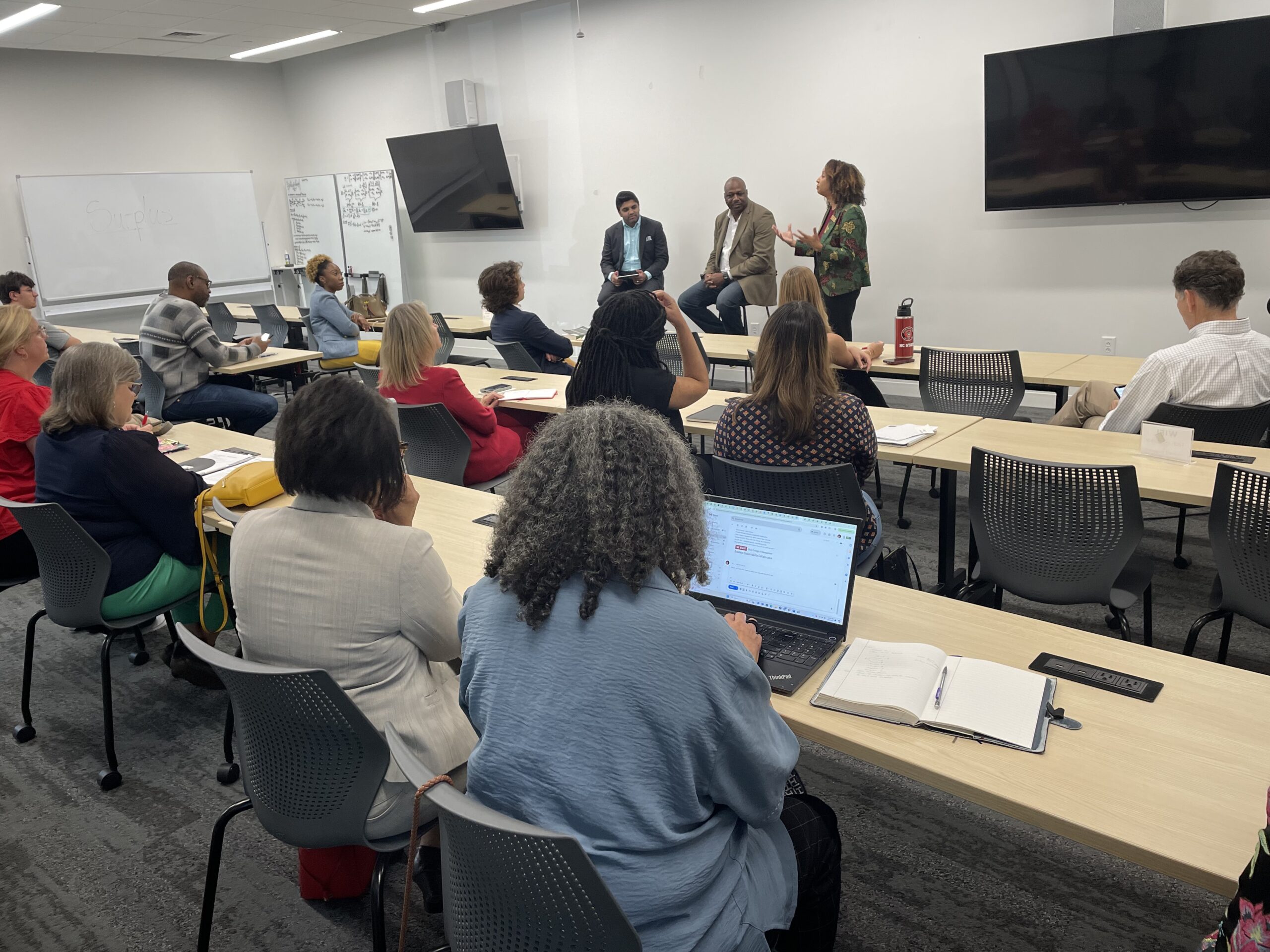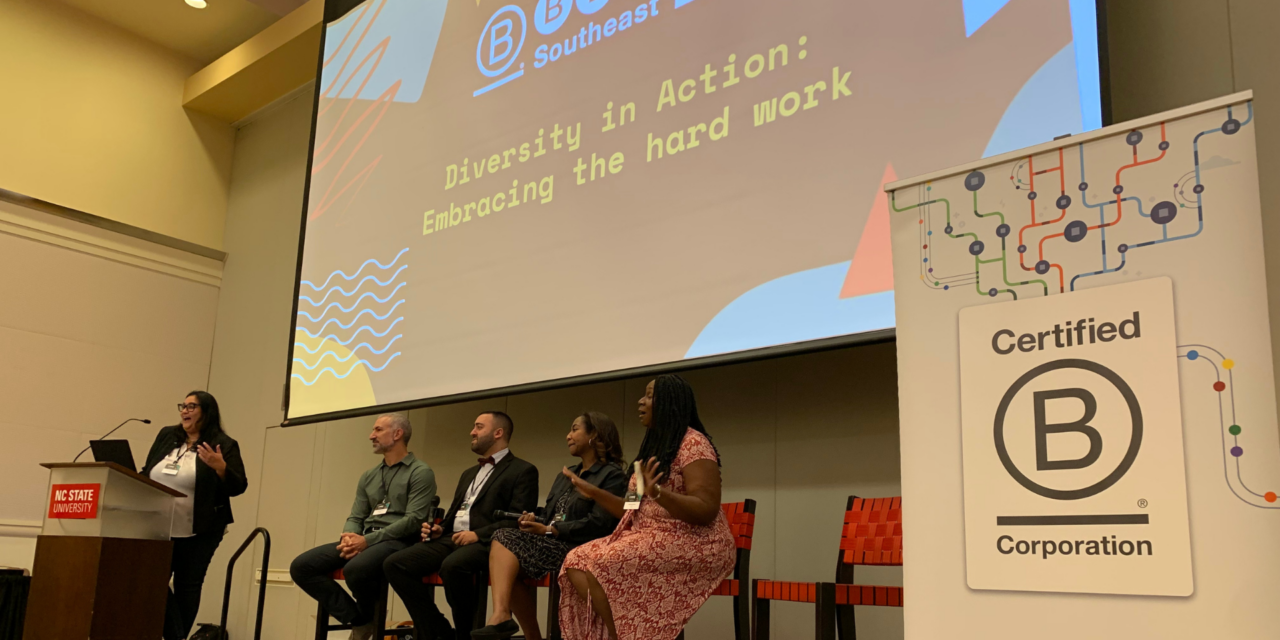‘LIVABLE COMMUNITIES SUMMIT’ HIGHLIGHTS PIEDMONT TRIAD PLANNING EFFORT
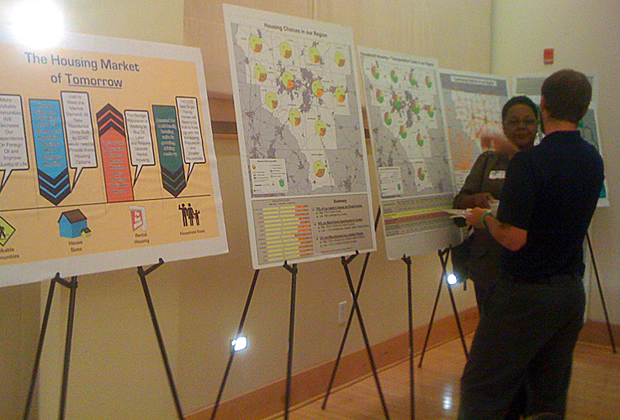
By Katie Kross
On Thursday, Oct. 25, nearly 200 stakeholders gathered at the Old Salem Visitors Center in Winston-Salem to discuss trends in demographics, housing, jobs, and transportation in the 12-county Piedmont Triad area and encourage a regional approach to planning for the future.
The event was part of the Piedmont Triad Sustainable Communities Planning Project—newly branded as “Piedmont Together”—made possible with a $1.6 million grant in 2010 from the U.S. Department of Housing and Urban Development. The goal of the three-year project is to develop scenarios and recommendations, with input from Triad residents, that will meet the infrastructure and housing needs of a growing populace, while also incorporating quality of life factors like walkable communities, green space, and access to local food.
“It is really about making our entire region stronger, more resilient than it was before,” said Mark Kirstner, project manager for the Piedmont Together effort.
The Piedmont Triad region is one of 94 regions around the country (four total in North Carolina) that have been awarded federal sustainability planning grants through HUD.
Kirstner noted that Triad communities have a few reputational hurdles to overcome. A recent ranking of U.S. cities by a group called Reconnecting America gave Greensboro a grade of ‘D’ in all of its four categories of Living, Working, Moving, & Thriving (“Are We There Yet? Creating Complete Communities for 21st Century America”). Certainly rankings of this nature are not without critics, but they can still play a role in attracting—or deterring—employers and economic growth.
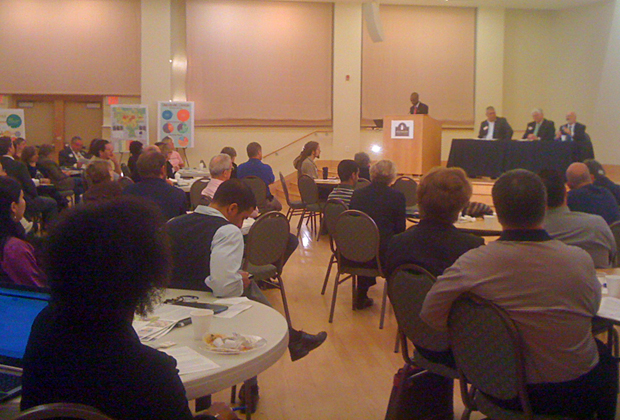
Winston-Salem mayor Allen Joines welcomed attendees to the Summit, which was presided over by Algenon Cash, president of Wharton-Gladden, Inc.
University of Utah professor Arthur Nelson shared national and local demographic trends and implications for planning, particularly for housing. “We’re looking at very dramatic changes in our society,” he noted, due to aging Baby Boomers and a continuing trend towards renting versus owning homes in the future.
The audience heard from Bethany Wilcoxon, project manager for The Tomorrow Plan, a regional planning effort that Des Moines, Iowa has undertaken. Many of Des Moines’ regional challenges and its development goals, such as “enhance mixed uses, walkability/accessibility, and sense of place,” resonated with the Triad audience.
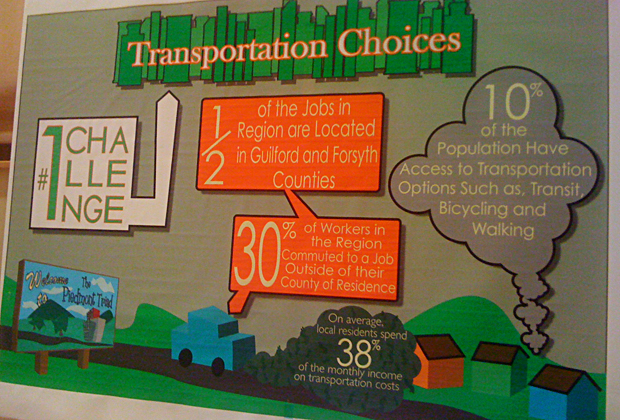
Speakers also included local business and community executives who spoke about a variety of efforts underway—from transit initiatives to mixed use redevelopment. Dennis Quaintenance, owner of Greensboro’s Proximity Hotel—the first hotel in the nation to achieve the green building industry’s LEED Platinum standard—spoke about some of the business advantages of going green. “It makes sense to use 39% less energy,” he said. “It saves $540,000 a year.”
Using a live handheld polling system, the audience weighed in on questions about development priorities for the region. Anyone not in attendance can still voice opinions through an online poll at www.PiedmontVoice.org. Throughout the entire planning project, the PiedmontVoice website will be used to solicit ideas and feedback from residents. After all, planning livable communities requires input from those who live there.
- Categories:
